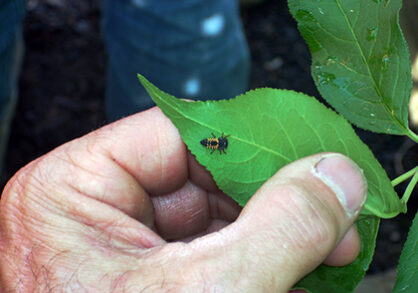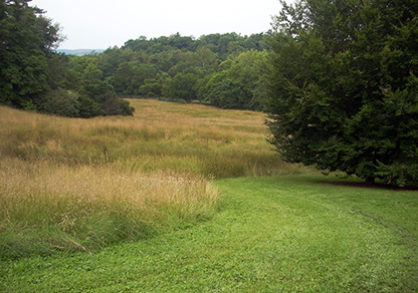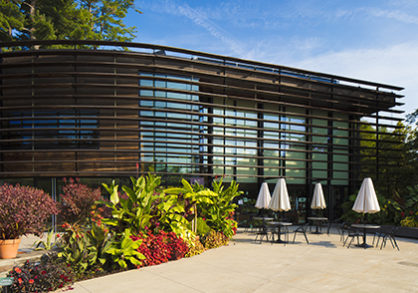Sustainable gardening and landscape practices are showcased throughout Cornell Botanic Gardens. Not only do these practices cut down the use of energy, water, and other resources, they reduce greenhouse gas emissions, which contribute to climate change.
Sustainable Home Garden
Our vegetable garden located near the Nevin Welcome Center demonstrates sustainable practices for the home garden such as attracting insects for pollination and pest control, amending the soil naturally, minimizing pesticide and other chemical use, capturing rainwater, and more. We hope you can visit to learn a few new tips to try at home.
Can’t visit soon? View tips for gardening sustainably “from the ground up” from our interpretive panels.
Gardening for Climate Change
The Climate Change Garden demonstrates how a changing climate affects the plants we grow and how we can adapt our gardens so they continue to thrive.
Download this brochure on ways to adapt your garden to climate change.
Rainwater Management
The Bioswale Garden near the Welcome Center and the Watercourse Garden in the Arboretum were designed to slow down and filter stormwater. Here are some resources for creating these “rain gardens” on a scale for your home landscape.
Plant with Natives
The Mundy Wildflower Garden is a wooded landscape with an exceptional diversity of native plants. Sections of this garden incorporate formal plantings at each entrance to demonstrate ways to landscape with native plants, and provide food, water, and shelter for native pollinating insects and other wildlife.
Download a list of native plants to attract pollinators in various regions of the U.S. from the Xerxes Society for Invertebrate Conservation.
Native lawn
The native lawn demonstration, located in the Mundy Wildflower Garden, was designed to replace conventional lawn with native low-growing grasses, which only require mowing once or twice per year.
Learn more about the plants grown in this area.
Low Mow Lawn
Reduce emissions by mowing your open lawn or fields only once or twice per year.
Sustainable Gardening at Cornell Botanic Gardens
Much of our efforts are devoted to minimizing the use of chemical pesticides by practicing integrated pest management.
Energy and Resource Conservation
We make every effort to conserve energy, water, and other resources.
Green Building and Infrastructure
We employ green infrastructure—a practice of integrating natural systems into the built environment.


